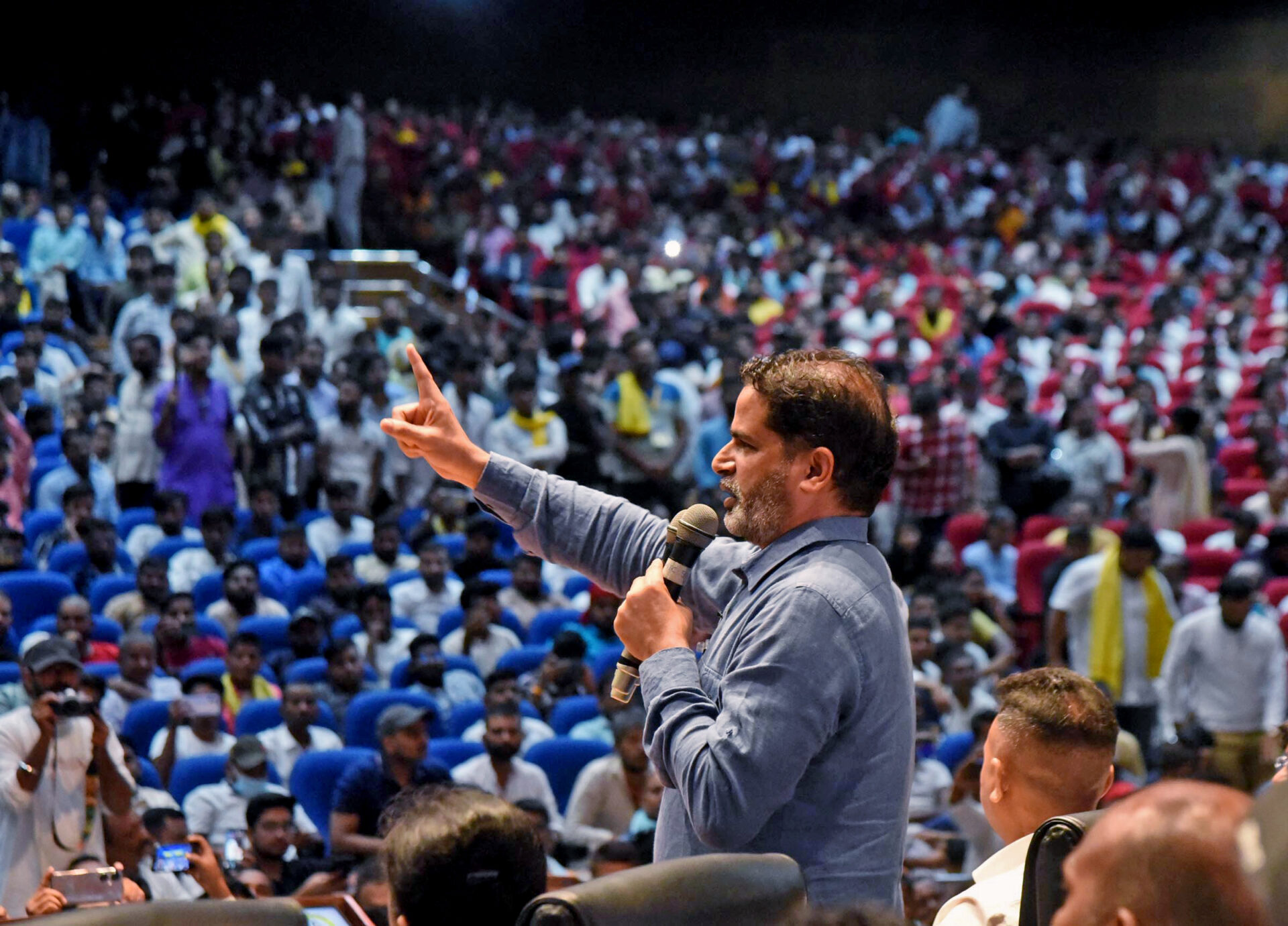NEW DELHI: Kishor is crafting a pro-Muslim narrative, targeting underrepresented areas like Seemanchal, Mithilanchal, and Koshi to address political marginalisation.
Prashant Kishor’s new political party, set to launch in October, plans to offer proportional representation to Muslims in seat distribution. With Muslims making up around 14% of Bihar’s population, the party could allocate approximately 34 of the 243 assembly seats in Bihar to Muslim candidates—potentially the highest by any party in the state.
This move has prompted the RJD leadership to scramble to correct past mistakes and reach out to Muslim leaders in regions with significant Muslim populations.
According to leaders close to Kishor, he is crafting a pro-Muslim narrative, questioning why the community has not produced a pan-India or even a pan-Bihar leader. He argues that the lack of adequate representation in political parties is the root cause. A political expert noted, “Kishor is focusing on Muslim-dominated areas like Seemanchal, which has 15 assembly constituencies, and where the AIMIM, led by Asaduddin Owaisi, won 5 seats. He is also targeting Mithilanchal, with 15 constituencies, and Koshi, which has 13.”
An RJD insider commented, “Kishor is trying to weaken the RJD by reaching out to dissatisfied members within the party. While some BJP leaders see a strong Kishor as beneficial, the party’s top leadership in Bihar is wary of his growing popularity and influence.”
Political observers also believe that if Rashtriya Janata Dal leader Tejashwi Yadav ascends to the top post in the upcoming assembly elections, it could shift the state’s political dynamics, challenging the BJP’s electoral stronghold and potentially solidifying Yadav’s position for an extended period. Experts suggest that Kishor may aim to create obstacles for Tejashwi, focusing on weakening his party rather than the BJP.
Simultaneously, Kishor is reportedly working to attract upper-caste Brahmins away from the BJP, which could significantly impact the BJP’s numbers.
A BJP leader remarked, “Brahmins are a traditional vote bank for the BJP. If we lose their support, it could result in significant electoral losses, potentially costing us over a dozen seats if just 20% of Brahmin votes sway.”
In response, the BJP is considering increasing the number of Brahmins in Bihar’s new executive body to counteract this potential shift.
A leader associated with Kishor stated, “Our party is pursuing its own interests, and we aim to challenge all parties, not just one. We’re not focusing on any particular caste; people from all walks of life are eager to join us. Lawyers, engineers, doctors—many are drawn to Kishor’s vision. Additionally, numerous bureaucrats have joined, creating a bureaucratic aura within the party’s operations, although Kishor personally oversees all major decisions, from leader inclusion to policy-making.”

